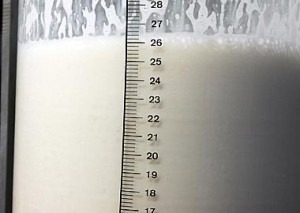 Many measures for the milk sector are currently being discussed. Here you find our evaluation, which measures can protect the milk sector in an effective and sustainable manner and which measures do not provide any solution.
Many measures for the milk sector are currently being discussed. Here you find our evaluation, which measures can protect the milk sector in an effective and sustainable manner and which measures do not provide any solution.
Right or wrong
The excessive volume of milk must be reduced in times of crisis using the Market Responsibility Programme (MRP). It can stabilise prices gently, for instance with a voluntary restraint on supply (cutting production in return for a bonus payment). What is wrong is a purblind export strategy and flooding other markets with EU surpluses. Those markets are just as saturated (Russian ban on imports, China’s decrease in imports). This will only put further downward pressure on the price for everyone.
Problematic
Raising the intervention price only whilst simultaneously reducing the volume. This results in only a brief intervention period, as a stabilised market price kicks in soon. Raising the intervention price without simultaneously reducing the volume is problematic. It only further boosts production. A proper analysis of the situation is required. The Russian embargo and the decrease in exports to China have to be put in the right context: they are reasons why demand cannot keep up with the growth in production. That is why the growth in production has to be curbed.
Geopolitical
The same applies to other geopolitical or geo-economic developments brought on by crises. For instance, if the trend in oil prices, financial market crises or terrorism cause demand to fall, there has to be a reaction on the supply side as well. Futures markets are not suitable for preventing crisis prices. For, even if low prices are also to be expected in the months to come because of a chronic oversupply, futures will not be concluded with reasonably high prices. Because prices are also determined by the milk market/its expected development.
Subsidies are not a solution. Direct payments to the producers cannot either make up for the loss or eliminate the cause of the problem. That is because the EU market is facing chronic surpluses which cannot be eliminated by simple subsidy payments.
Many thanks to Silvia Däberitz, EMB

